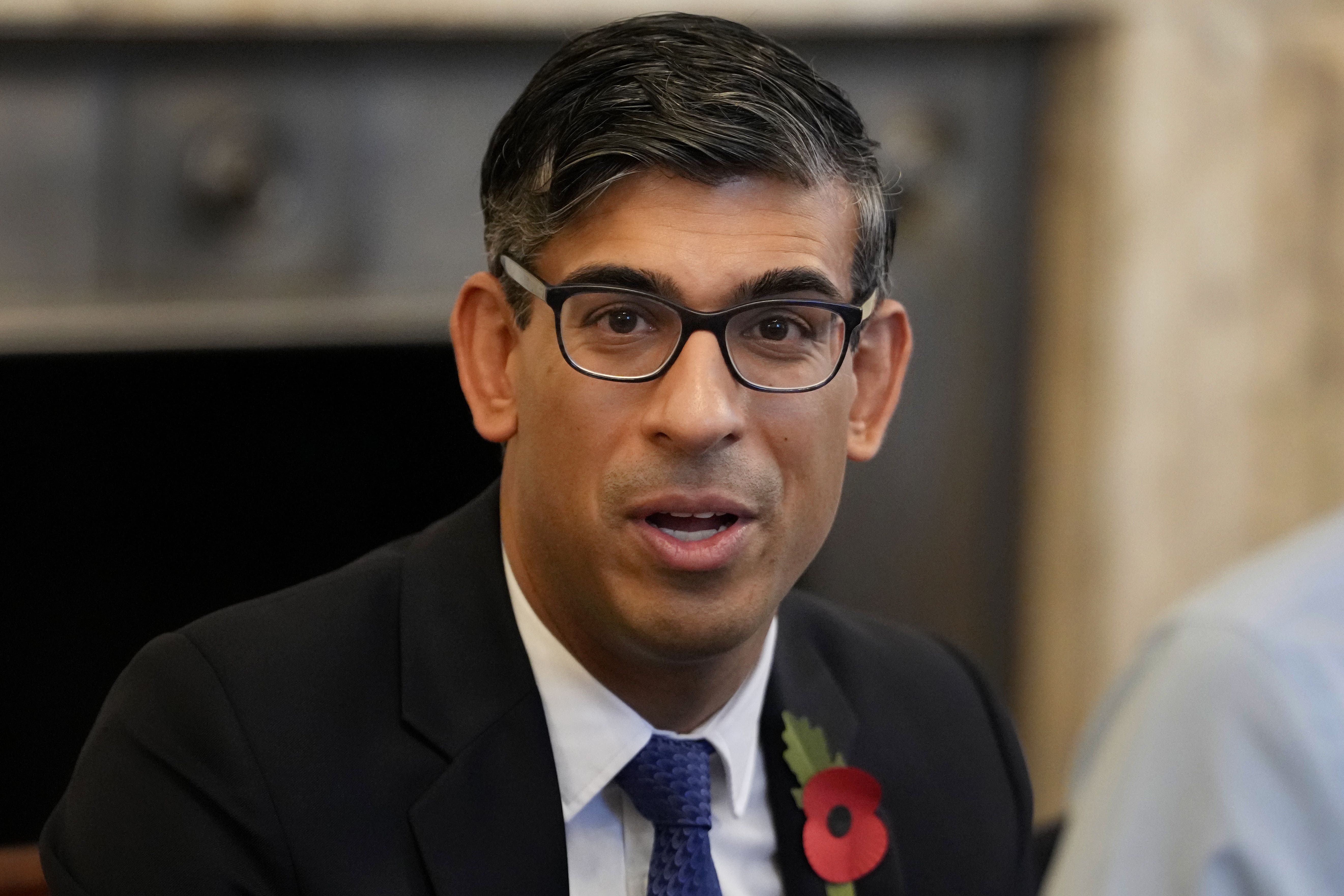We owe it to our children to grip AI risks ‘early enough’, Sunak says
The Prime Minister will arrive on Thursday at Bletchley Park for the second day of the UK’s AI summit.

Your support helps us to tell the story
From reproductive rights to climate change to Big Tech, The Independent is on the ground when the story is developing. Whether it's investigating the financials of Elon Musk's pro-Trump PAC or producing our latest documentary, 'The A Word', which shines a light on the American women fighting for reproductive rights, we know how important it is to parse out the facts from the messaging.
At such a critical moment in US history, we need reporters on the ground. Your donation allows us to keep sending journalists to speak to both sides of the story.
The Independent is trusted by Americans across the entire political spectrum. And unlike many other quality news outlets, we choose not to lock Americans out of our reporting and analysis with paywalls. We believe quality journalism should be available to everyone, paid for by those who can afford it.
Your support makes all the difference.Rishi Sunak has said the world owes it to younger generations to grip the risks of artificial intelligence (AI) “early enough” ahead of his appearance at the UK’s tech summit.
The Prime Minister will arrive on Thursday at Bletchley Park, home to Britain’s codebreaking operation during the Second World War, to host representatives from 27 countries alongside tech companies and civic society groups.
Ahead of the second day of the summit, he said the task of monitoring the risks posed by AI could not be left to tech firms alone.
He warned companies could not be left to “mark their own homework” in an interview with the BBC, against a backdrop of concerns about the technology’s potential capabilities.
In a statement ahead of Thursday’s agenda, he said: “I believe there will be nothing more transformative to the futures of our children and grandchildren than technological advances like AI.
“We owe it to them to ensure AI develops in a safe and responsible way, gripping the risks it poses early enough in the process.”
It comes after the first day of the summit saw delegations from around the world, including the US and China, agree on the so-called “Bletchley declaration” – a statement on the risks surrounding the technology to be used as the starting point for a global conversation on the issue.
US vice president Kamala Harris, who met Mr Sunak in Downing Street on Wednesday, will be among attendees on Thursday after it was confirmed President Joe Biden would not attend.
French President Emmanuel Macron is also not present at the summit, though Downing Street has denied the absences indicate the event is being snubbed by world leaders.
Sir Nick Clegg, the former Liberal Democrat deputy prime minister who is now president of global affairs at Meta – the parent company of Facebook, is among the attendees, as is billionaire tech boss Elon Musk, who will host an online interview with Mr Sunak after the summit closes on Thursday evening.
In an interview with the PA news agency, Mr Musk said he believes AI is “one of the biggest threats” to humanity, and that the summit was “timely” given the scale of the threat.
He said it was an “existential risk” because humans for the first time were faced with something “that is going to be far more intelligent than us”.
Meanwhile, Sir Nick warned that governments must prepare for AI being used to interfere with upcoming elections and needed to cooperate “right now” on the role it will play.
Speaking to ITV 1’s Peston, Mr Sunak expressed delight at Mr Musk attending the summit – given his “long track record” in the sector.
Told Mr Musk mentions the extinction risk regularly, Mr Sunak replied: “What he and others have said is that we can’t be certain, no-one can know with certainty about those types of risks. But people have said there is a potential for AI to pose risks that are like pandemics or nuclear wars.
“Now, even if that’s a small possibility, and there is uncertainty about that because many experts say that that is not remotely going to happen, but even if it’s a small possibility, because it’s such a significant risk, it’s right that leaders like me take the steps to protect our countries.
“And that’s what I’ve done there. I’ve taken a lead, globally, in making sure that we can protect the British public against these risks, however small they might be, so that we can focus on getting the benefits of AI for our families, and health and education, and not worry about those things.”